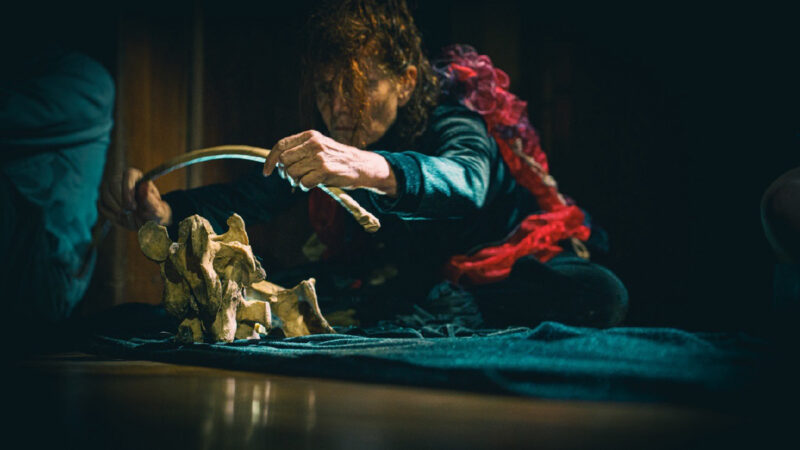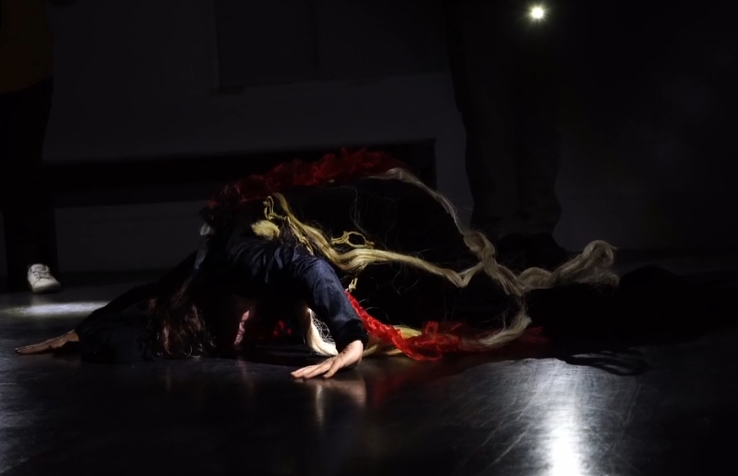A project imagined by Esteban Donoso
Esteban Donoso focuses on the archiving and transmission of dance and performance, oral histories, and practice-based methodologies. On November 20, 2024, he presented excerpts from his doctoral thesis Olas de Otro Mar: Reenacting, Renarrating, and Ruminating Dance in Quito-Ecuador, in connection with the performance La Huesudita, which is part of his study.
Originally performed at the women-led festival No Más Luna en el Agua (No More Moon in the Water) (NMLA) in Quito, Ecuador, La Huesudita exemplifies the struggles of its creators and their persistence in attaining visibility and autonomy as women dance artists. In revisiting this dance, we unearthed various archival materials and oral accounts, uncovering a difficulty in being “read” or understood by local audiences and critics. Yet, despite these struggles, the piece has endured, continually reappearing in different forms—a testament to the persistence of the NMLA founders and their vision.
The reenactment of La Huesudita was performed by Marcela Correa, one of the festival’s founding members.
The reading featured Esteban Donoso, Marcela Correa and Lilia Mestre, Assistant Professor in the Department of Contemporary Dance at Concordia University.
Link to Esteban Donoso’s thesis Olas de Otro Mar: Reenacting, Renarrating, and Ruminating Dance in Quito-Ecuador, submitted at York University in Toronto, here.
Marcela Correa (she, her) was born in Quito, Ecuador. She trained as a dancer at Frente de Danza Independiente in Quito, which she co-founded in 1985, studying with Wilson Pico, Kléver Viera, and Carlos Cornejo. She earned a Master’s degree in Expressive Arts Therapy from Lesley University in Boston, MA. She also trained in authentic movement, somatic movement techniques, improvisation, and contact improvisation. From 2006 to 2024, she was the coordinator of the Performing Arts department at Universidad San Francisco de Quito, where she founded the contemporary dance company TALVEZ.
Esteban Donoso (he, they) is a researcher-artist from Quito, Ecuador currently living in Montreal. He recently completed his PhD in Theatre and Performance Studies at York University in Toronto. His work focuses on dance and performance archiving and transmissions, oral histories, and practice-based methodologies. He explores how re-narrating our personal and collective histories can help us re-construct and re-wire the interconnected fabric that holds them together. His artistic work has been shown in Ecuador, Colombia, Chile, Belgium, Switzerland, France, the U.S., and Canada.
Lilia Mestre (she, her) is a performing artist, dramaturge and researcher working in collaborative formats mainly in the fields of contemporary dance and choreography. She is currently Assistant Professor in the Department of Contemporary Dance and co-director of LePARC Performing Arts Centre at Concordia University. Previously she was the artistic director of postgraduate program a.pass (advanced performance and scenography studies) in Brussels.


